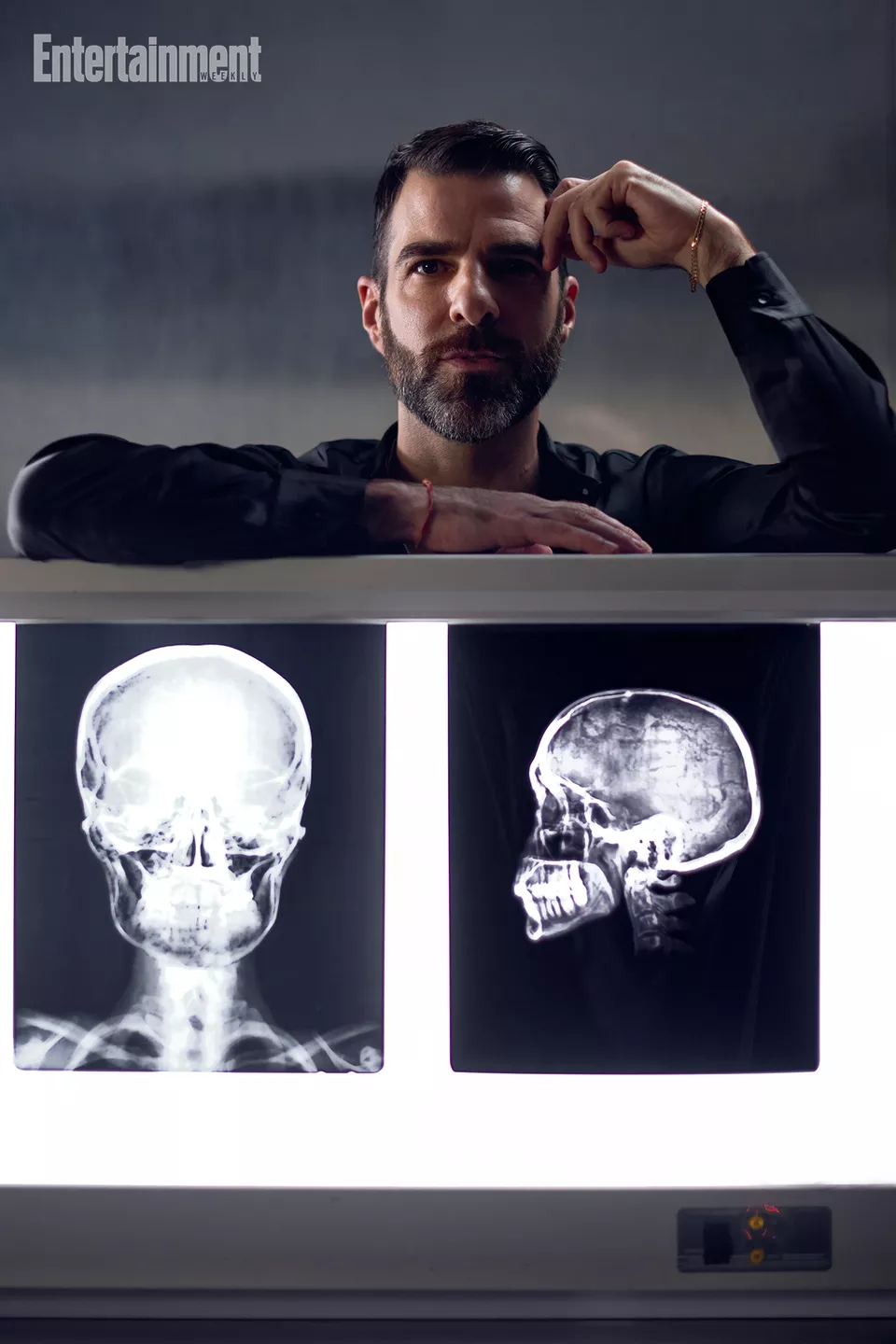Zachary Quinto Unveils New Dimension of Brain Science in NBC’s Brilliant Minds
Channeling the spirit of renowned neurologist Oliver Sacks, NBC’s Brilliant Minds takes a fresh approach to the medical procedural genre, with Zachary Quinto leading the charge. As he effortlessly strikes poses for Entertainment Weekly’s camera, Quinto’s expertise in blending dramatic flair with medical precision is evident. Between takes, his keen eye ensures every movement—from raising an eyebrow to tilting his chin—is perfectly calibrated as he examines skull X-rays and positions his face behind them.
Quinto’s fascination with the brain isn’t new. His breakout role on Heroes featured him as a super-villain who consumed brains for power. He also portrayed the iconic Spock in Star Trek and played a troubled mental health specialist in American Horror Story: Asylum. Now, Quinto steps into the role of Dr. Oliver Wolf in Brilliant Minds, a character who solves medical mysteries using unconventional methods while grappling with his own mental health issues, sexuality, and prosopagnosia (face blindness). Despite the complexities, Quinto finds Dr. Wolf to be one of his most grounded characters.
“Wolf doesn’t harbor any hidden darkness,” Quinto tells EW during a lunch break in his Brilliant Minds Toronto trailer. “He’s iconoclastic and rebellious, sometimes acting impulsively, but fundamentally he’s a good person. It’s refreshing to portray someone who, despite coloring outside the lines, is dedicated to helping others and improving their lives.”
Quinto was initially hesitant about returning to network television, particularly to lead a medical procedural. “The prospect of committing to a long-term project was daunting,” he admits. The rise of streaming platforms has significantly altered the landscape of TV, but Quinto is optimistic about the potential of network TV to recover its former prominence.
“The landscape of TV is shifting back to a type of programming we had somewhat moved away from,” Quinto notes. “There’s a renewed interest in appointment television, and network procedurals have a reliable appeal.”

Although streaming platforms have gained ground, accounting for nearly 39% of TV usage as of May, Nielsen data shows that broadcast and cable television still command over half of TV viewership annually. Broadcast series continue to attract millions more viewers than cable shows.
Moreover, while streaming’s growth has been steady, there are signs that interest might be waning, particularly in light of the inconsistent release schedules of original content. The resurgence of network TV hits, such as Suits and Young Sheldon, suggests viewers still value the familiar structure of network programming.
Medical dramas, in particular, have a longstanding appeal. Grey’s Anatomy remains a staple in streaming top 10s, and Chicago Med has seen significant viewer growth. Michael Grassi, creator of Brilliant Minds, aims to honor the genre’s legacy while offering something new and exciting. “Medical dramas have always been comforting because they deal with high-stakes situations, whether life or death, and reveal character relationships,” he explains.
NBC’s executive vice president of scripted content, Lisa Katz, agrees. “Medical shows are beloved because they explore high-stakes scenarios that illuminate character dynamics and relationships.”
For executive producer Greg Berlanti, blending the procedural format with unique characters is crucial. “TV thrives on great characters and storytelling, not just replicating movie formulas,” he says. Despite a scarcity of recent top-ranking medical dramas, Berlanti remains hopeful that Brilliant Minds will meet the audience’s appetite for compelling, character-driven stories.
NBC has historically been a leader in medical dramas, from Dr. Kildare to St. Elsewhere and the groundbreaking ER. The latter, developed under Warren Littlefield, was influenced by the national discourse on healthcare and aimed to address the real-world medical crisis with a satisfying resolution.
As the genre evolves, Littlefield believes the demand for such storytelling remains strong. While ABC’s Grey’s Anatomy has dominated the medical drama landscape in recent years, NBC’s new series may well mark the return of network TV’s prominence in this beloved genre.
Latest new from Beuteeshop

